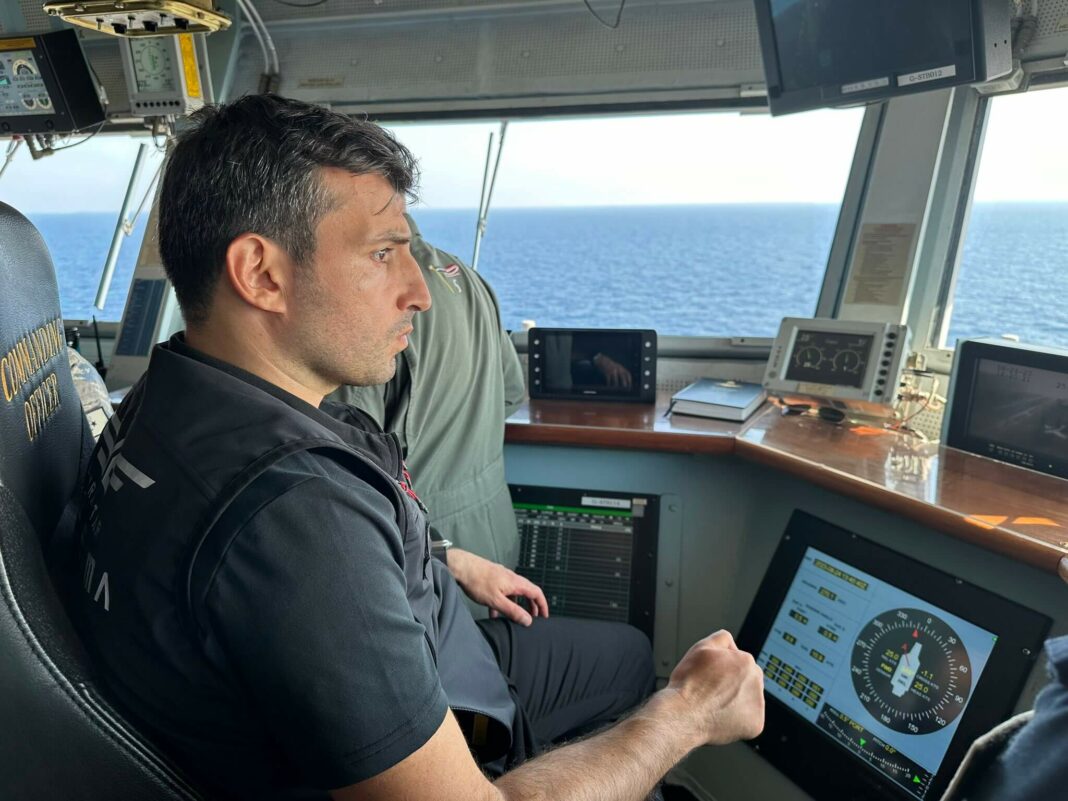Fatih Yurtsever*
On July 17, 2023, Russia withdrew from the Black Sea Grain Corridor Initiative, a key agricultural collaboration that had allowed grain export from Ukrainian ports. The agreement, signed in Istanbul in July 2022 by Turkey, the United Nations, Russia and Ukraine, aimed to restart grain shipments from Ukrainian ports that had been halted due to the conflict between Russia and Ukraine that began in February 2022. Following the withdrawal, Russia declared that ships transiting to Ukrainian ports would be considered legitimate military targets. This move aimed to halt grain exports through Ukrainian ports, a crucial source of income for Ukraine’s economy. These actions have radically altered the maritime security landscape in the Black Sea.
Ukraine announced new temporary corridors for commercial ships using the country’s Black Sea ports on Aug. 8, 2023 to secure alternate routes for grain exports. The announcement, supported by the United States, was made on the official Facebook page of the Navy of the Armed Forces of Ukraine. However, the long-term success of this initiative is uncertain without Turkey’s backing, which Ukraine currently lacks.
Turkey, for its part, is not endorsing Ukraine’s plan. Instead, the country hopes Russia will reconsider withdrawing from the Black Sea Grain Corridor Initiative. Russia initially withdrew from the agreement due to dissatisfaction with the terms, arguing that it hindered its grain and fertilizer exports. According to Russia’s foreign ministry, the country would only consider rejoining the initiative “upon receiving concrete results, not merely promises and assurances.”
Given the current situation, Turkey’s decision on how to position itself for grain transportation in the Black Sea will be important for Ukraine and other important stakeholders, such as the United States and Russia.
The upcoming bilateral summit between Turkish President Recep Tayyip Erdoğan and Russian President Vladimir Putin on Sept. 4 has added significance, given the recent shift in Turkey’s foreign policy orientation. Amid an economic crisis, there are claims that President Erdoğan is reorienting Turkey’s course toward closer ties with the West in an effort to seek financial support from the EU and the US.
Ahead of the Erdoğan-Putin summit, the United States has stepped up its key leader engagement and strategic communication activities for Turkey in the context of military diplomacy by making a port visit with an aircraft carrier to respond to the new maritime security threats emerging in the Black Sea and to demonstrate its strong alliance relationship with Turkey.
The anchoring of the USS Gerald R. Ford off the coast of Antalya on Aug. 25, the bilateral naval air cooperation exercise in the eastern Mediterranean between the US Aircraft Carrier Task Force and the Turkish Naval Task Group, which includes the TCG Anadolu, the flagship of the Turkish Navy, and the hosting of Selçuk Bayraktar, President Erdoğan’s son-in-law and chairman of Turkish defense contractor Baykar, on board the USS Gerald R. Ford by US Ambassador to Turkey Jeff Flake should also be considered part of key leader engagement and strategic communication.
Strategic communication, meanwhile, is a multidimensional tool that the United States employs to coordinate and disseminate messages to audiences. The objective is to influence perceptions, attitudes and behavior to support policy and operations. The United States’ public demonstration of naval power in conjunction with the Turkish Naval Task Group is a potent form of strategic communication, signaling the readiness of the United States and NATO to address emerging maritime security threats in the Black Sea. The message is multipronged: It reassures allies of the United States and NATO’s commitment to collective security, warns potential aggressors of the readiness and capability inherent in the alliance and seeks to bring Turkey further into alignment with NATO’s stance on the crisis unfolding between Russia and Ukraine.
Key leader engagement refers to a systematic approach to building and sustaining relationships with significant decision-makers and influencers in a geopolitical context. These engagements are designed to facilitate mutual understanding, trust and cooperation, often with an eye on shaping the perceptions and actions of the engaged parties in a manner that aligns with the United States’ strategic goals.
Bayraktar was invited to the US aircraft carrier and was briefed by Rear Admiral Eric J. Eslich on the aircraft carrier’s features and activities. The fact that he was allowed to sit in the commanding officer’s chair in the wheelhouse, which is only permitted for VIP guests according to navy tradition, shows that the United States sees Bayraktar as an important person. So why does the United States attach such importance to him?
The most likely answer to this question could be the following message to President Erdoğan through Bayraktar: The United States is promising Erdoğan cooperation and support against Russian President Putin in exchange for his support for Ukraine in the Black Sea and coordination of his Black Sea policy with the United States. Through Bayraktar, the United States is expressing its satisfaction with Turkey’s joint defense cooperation with Ukraine since Turkish defense contractor Baykar is selling unmanned combat aerial vehicles to Ukraine.
In conclusion, the changing conditions in the Black Sea are forcing Turkey and the United States to cooperate more. For President Erdoğan to say yes to such cooperation despite Russian President Putin, he needs strong support from the United States. With its recent activities, the United States has clarified that it will provide this support to President Erdoğan. How effective this support will be will depend on the decisions taken at the Erdoğan-Putin summit in Sochi on Sept. 4.
* Fatih Yurtsever is a former naval officer in the Turkish Armed Forces. He is using a pseudonym out of security concerns.



